A Little An Aside About The Quaker Nomad
In my last post, I wrote about Natalie Ramsland’s zine-making Quaker Project, Fold in the Light. It’s fresh, original, and inspiring.
But I left out an aside I wanted to share here: One of the zines she included in the mail sent to me is of a Quaker woman named Betsy Kenworthy: The Quaker Nomad (read the digital version on Natalie’s Substack).
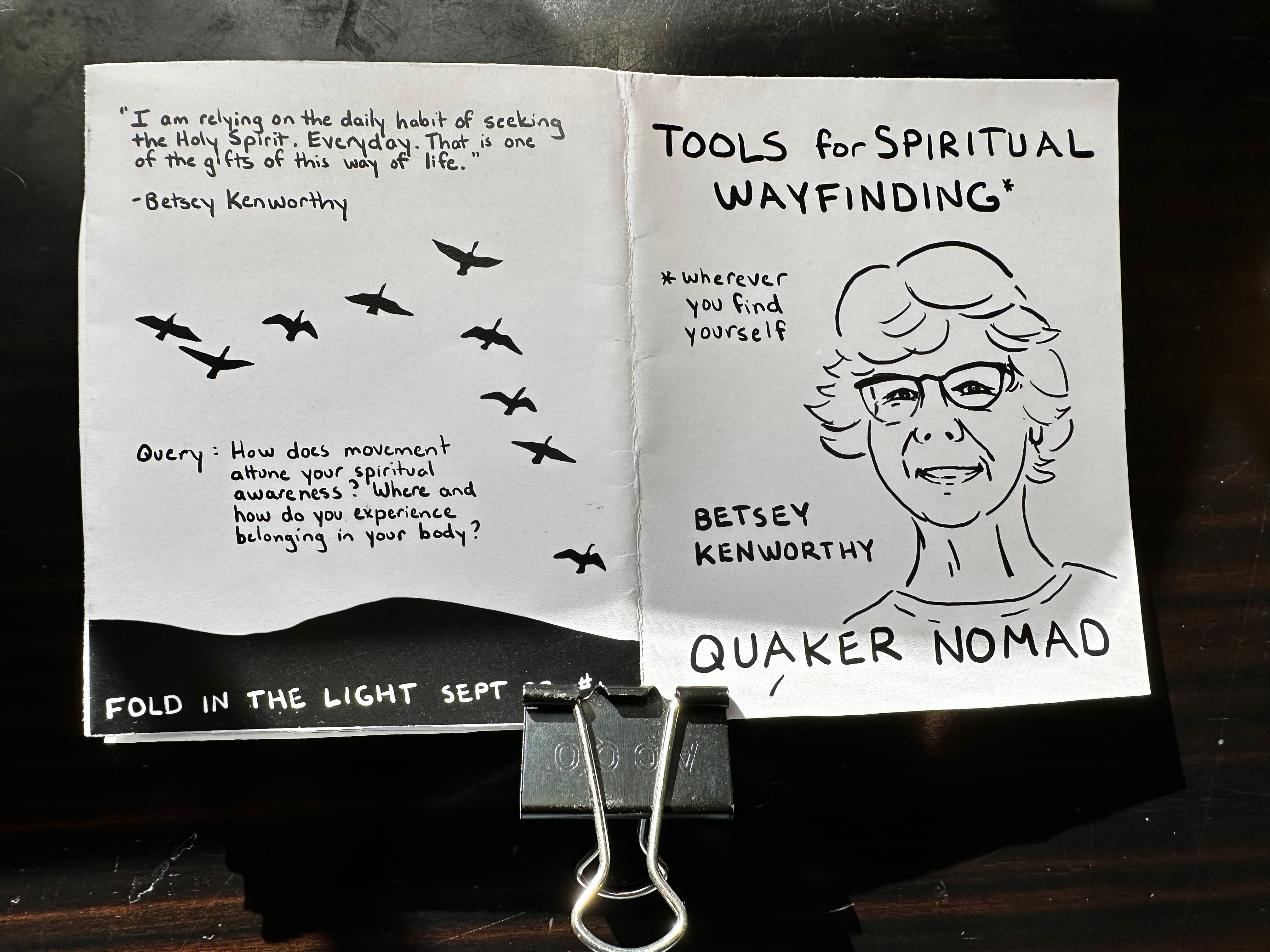
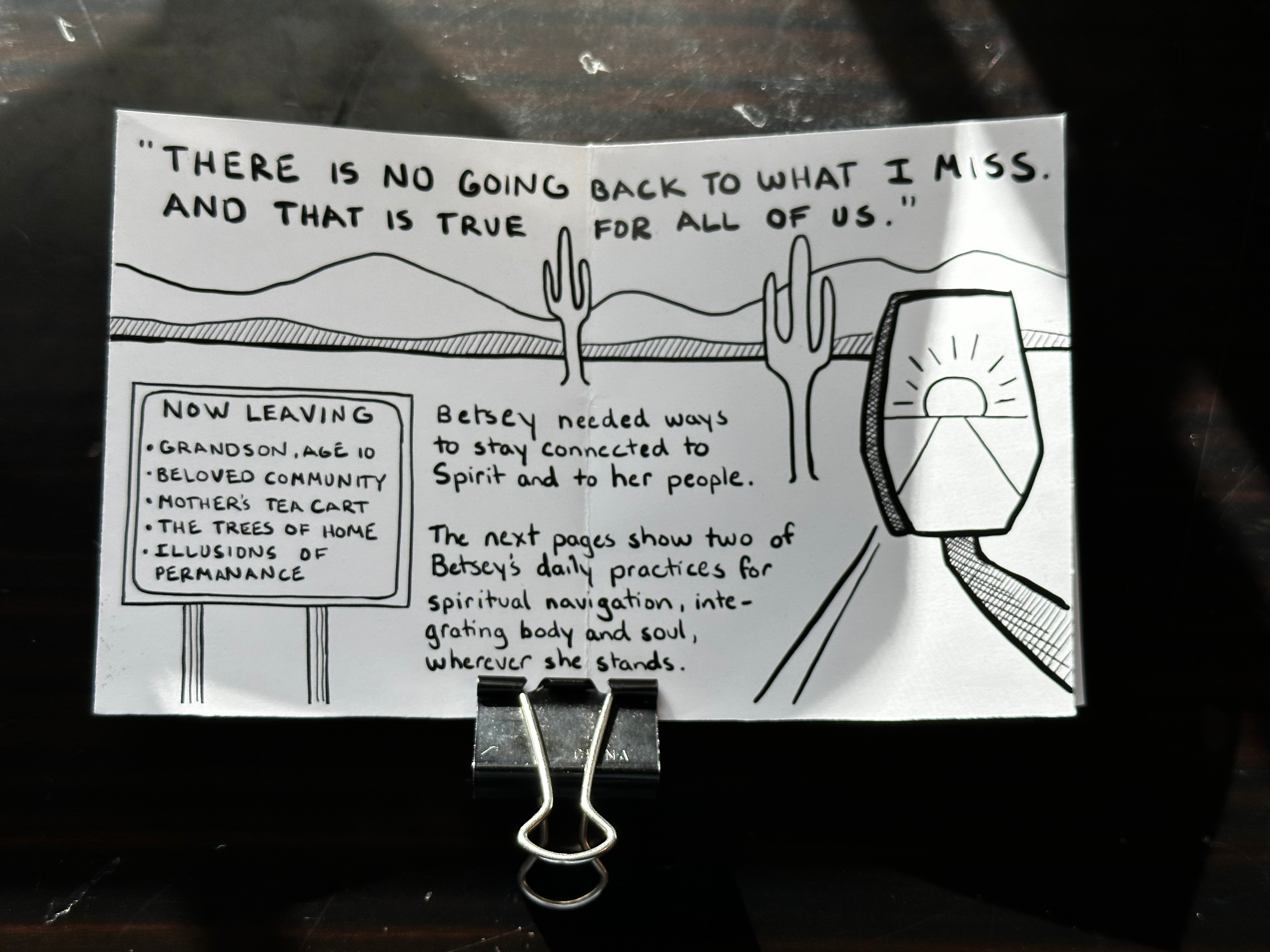
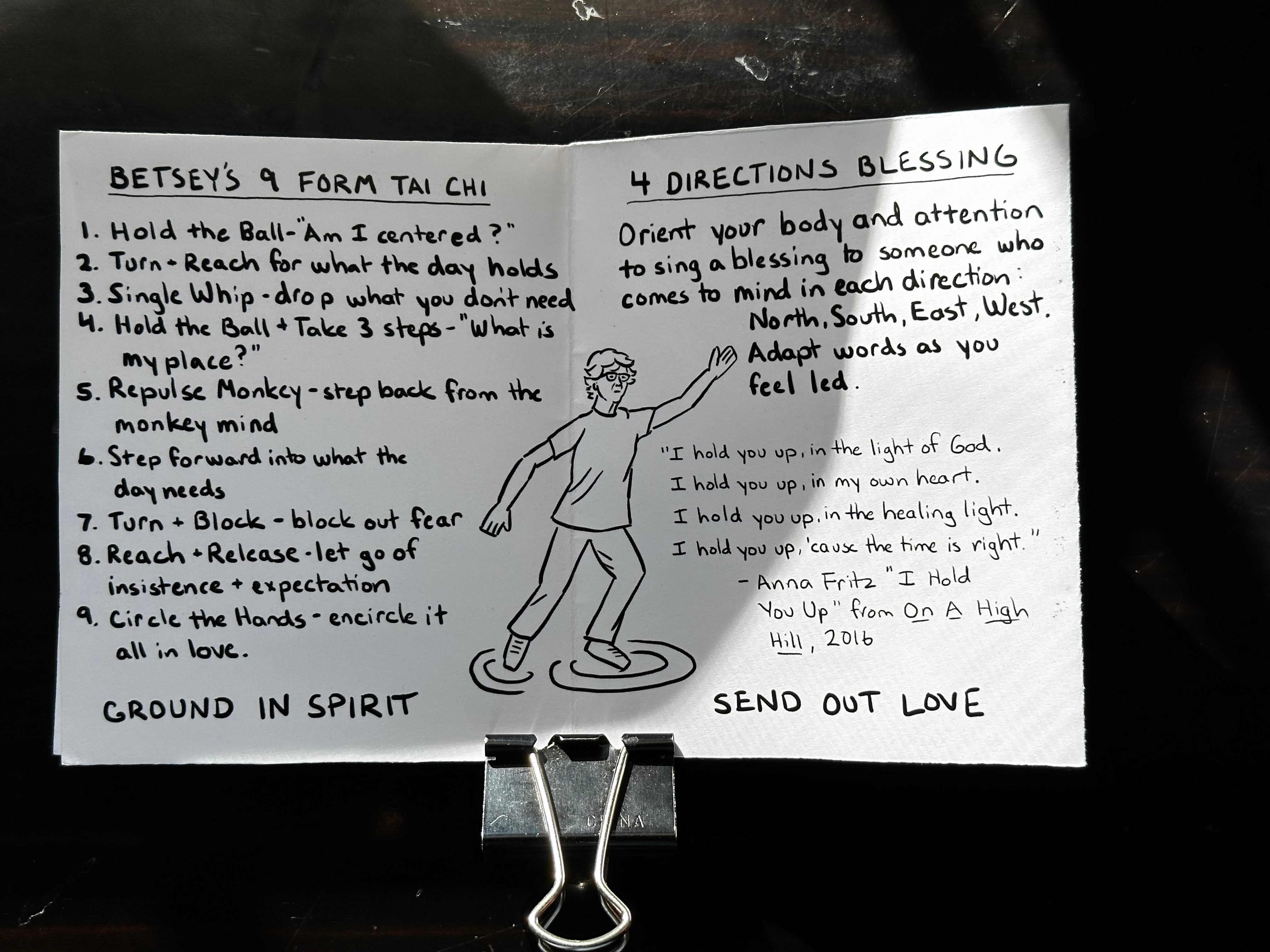
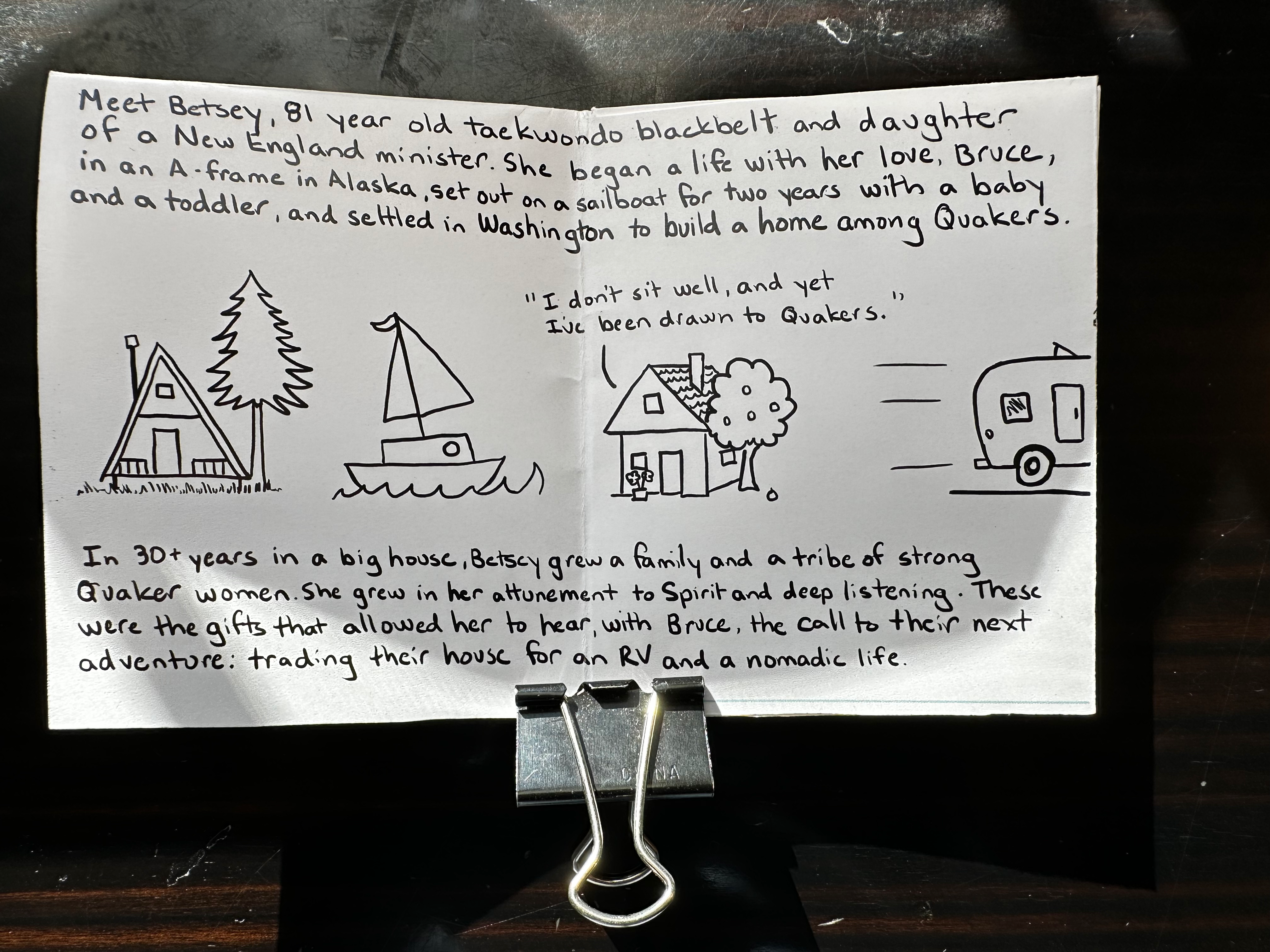
This was a familiar name and face to me from my time living in the Pacific Northwest. I was pleasantly surprised to be reminded of Betsy and a little story I have of her.
Here’s my story of the Quaker Nomad:
Not that long after I moved to Camas Washington with my family in 2009 to become the pastor of Camas Friends Meeting, Betsey Kenworthy reached out to me to ask if I would receive some books from her father who was a minister during his life. I was very glad and honored to do so. We arranged a time and she drove to Camas to meet me at the meetinghouse there. During our time together she shared with me both some of her dad, Henry Gray, life’s story, and of course a number of his books. That experience of kindness and her, an unprogrammed Quaker, bringing me, a pastoral Quaker, her father’s books was a deeply moving experience.
I carry those books with me still. I want to tell you about two of them.
First, the “Congregational Worshipbook” Gray published himself.
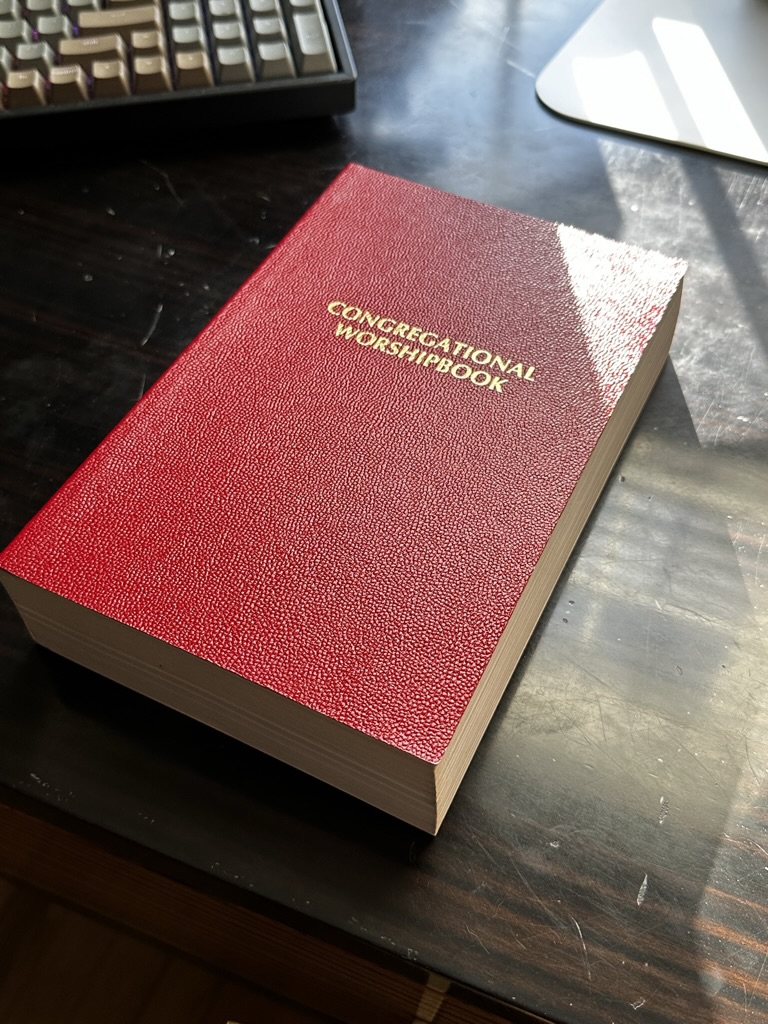
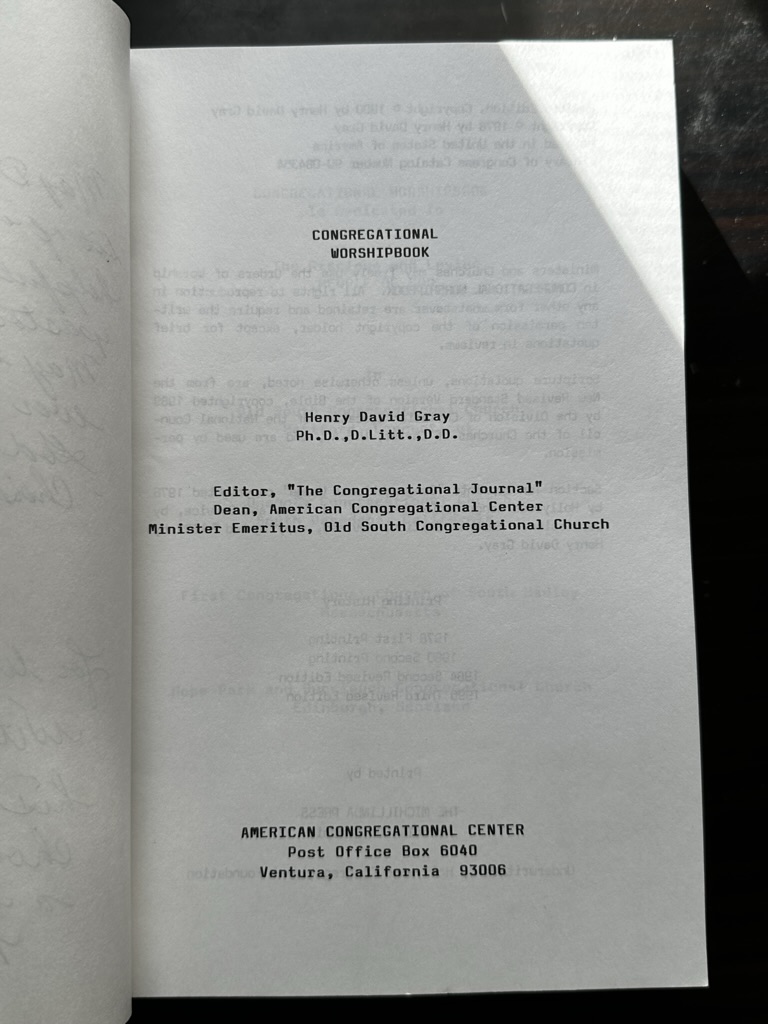
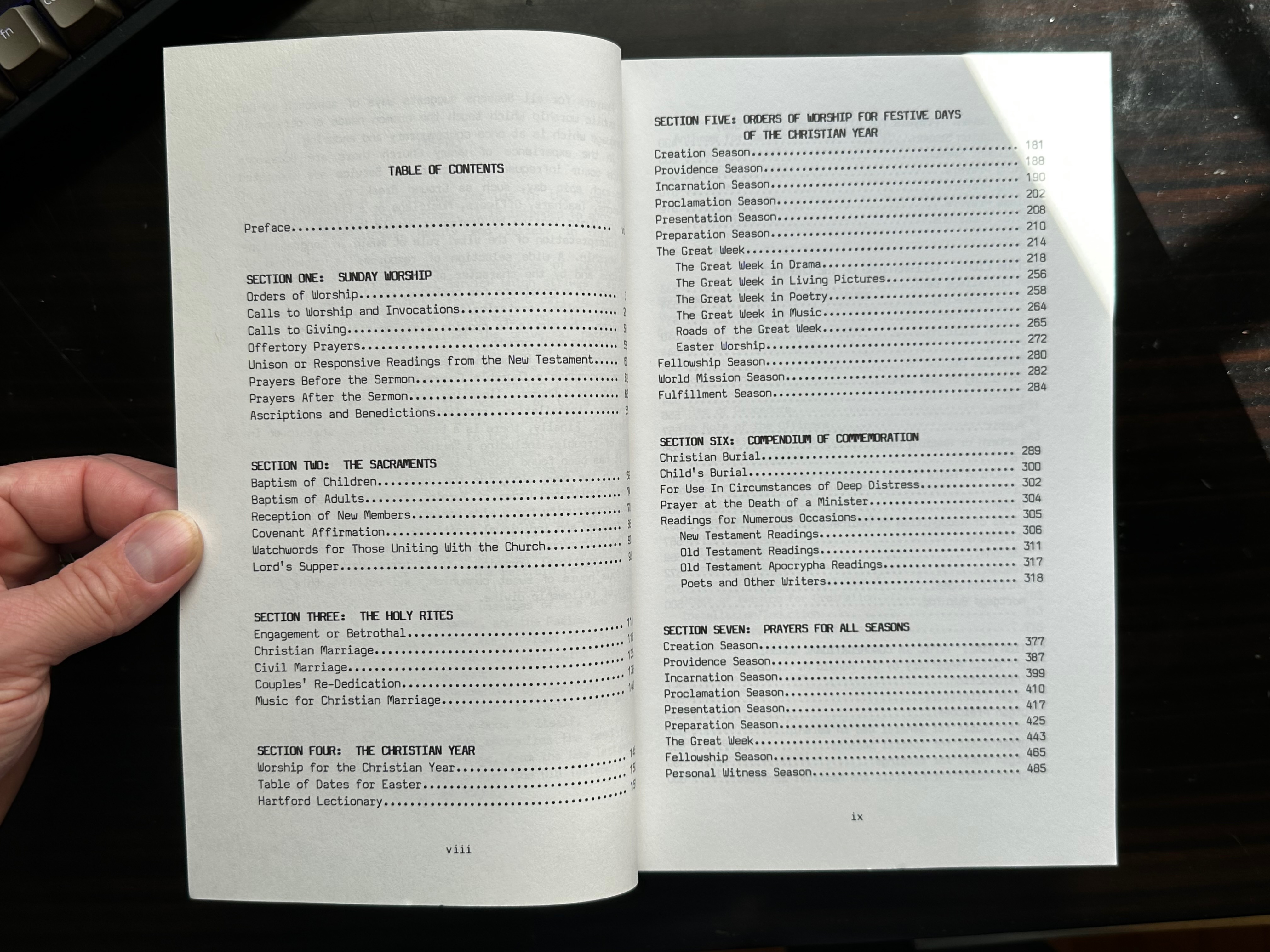
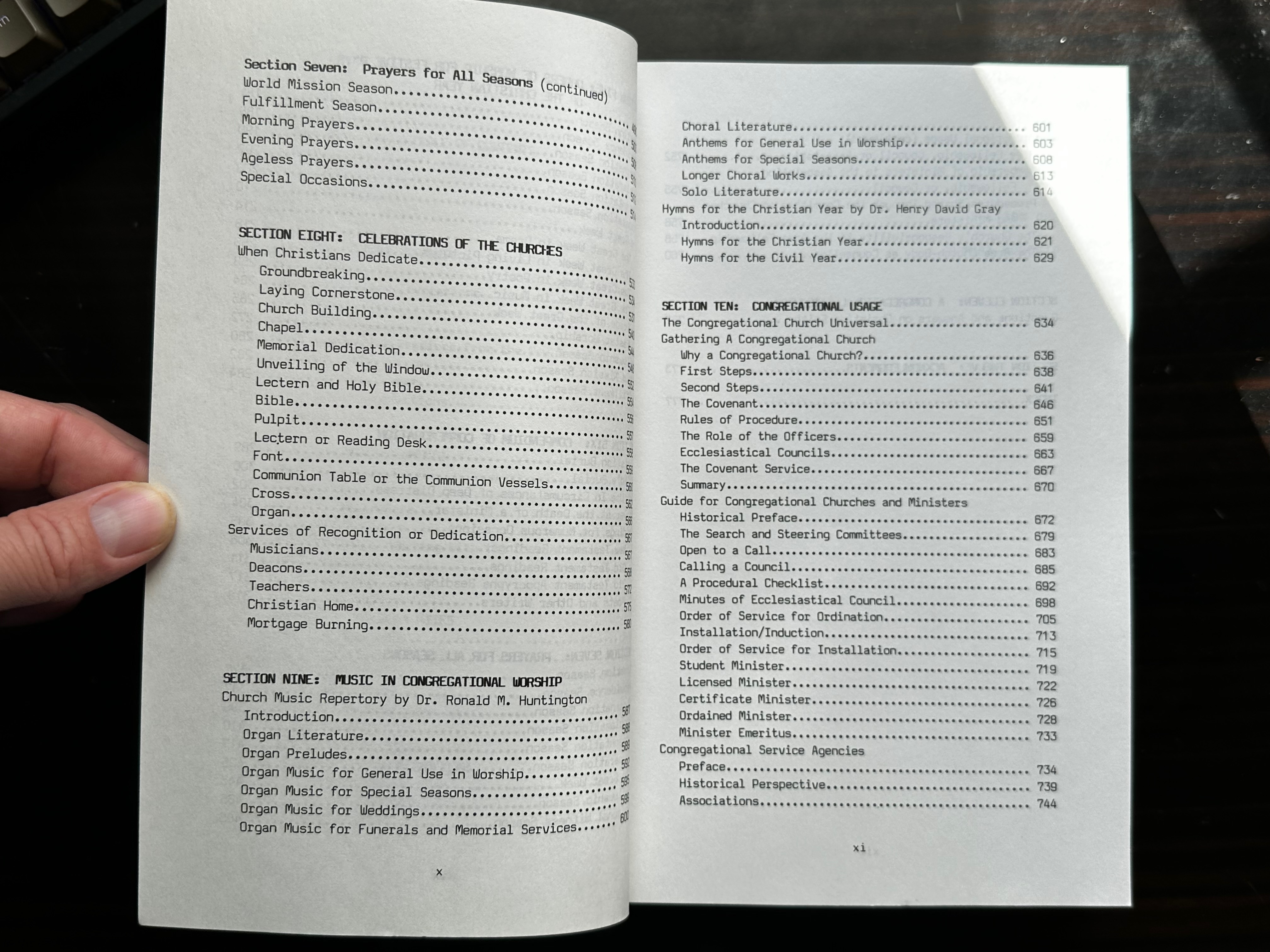
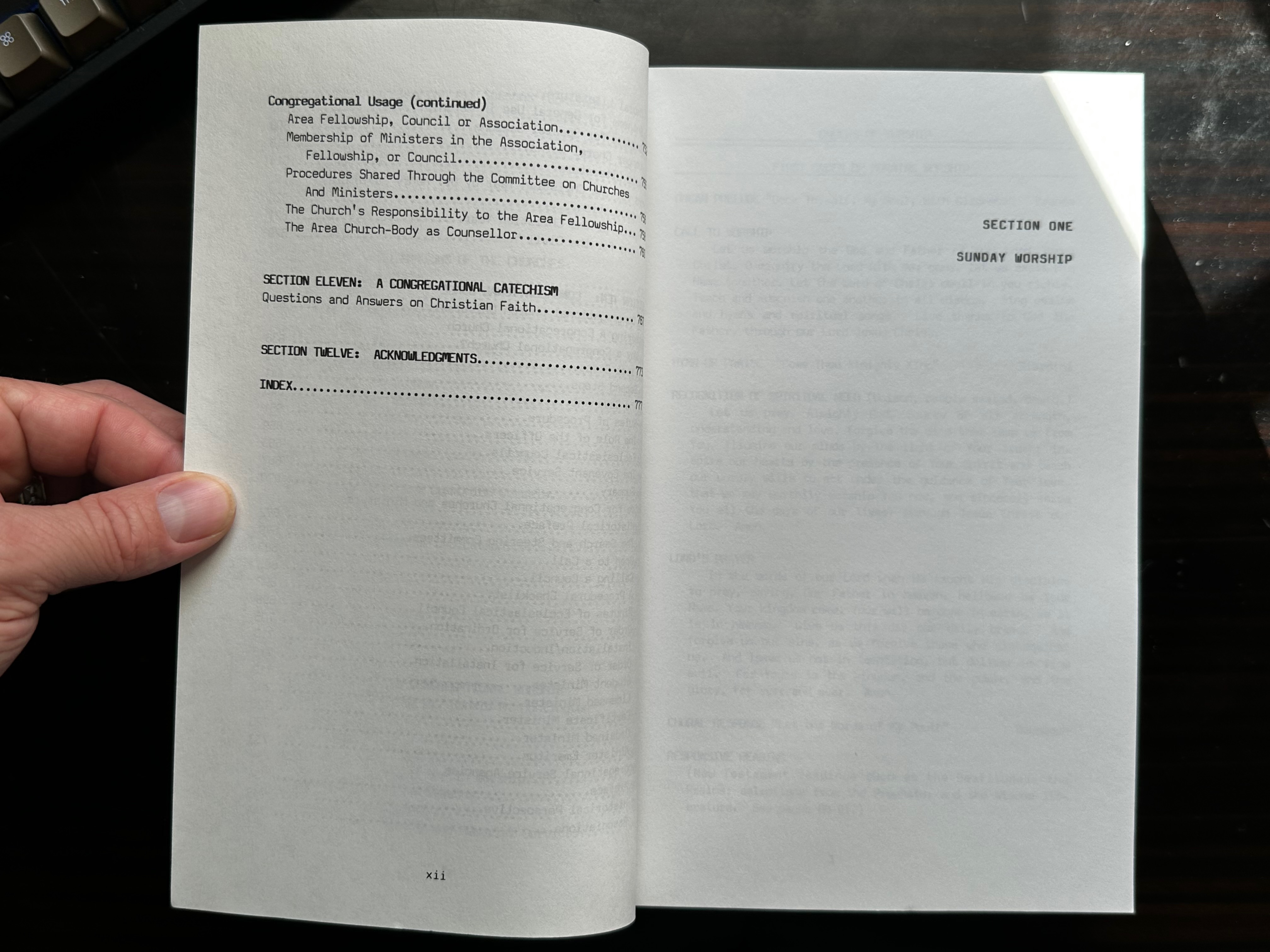
The Congregational Worship Book Published by Henry Gray
The Congregational Worshipbook is a cross between a self-made Book of Common Prayer and a Minister’s Handbook, containing many prayers, sermon topics, liturgies, and instructions for all kinds of ceremonies. Seeing this as a young minister not only was I inspired, I was greatly helped to have this little handbook for how and when to do things. It’s a book of Reverand Gray’s wisdom passed down to me. And while I didn’t know him, I can get a sense of his love, care, and attention to detail in this book. It truly is a beautiful thing to have in my library.
Second, a book of prayers by Walter Rauschenbusch.
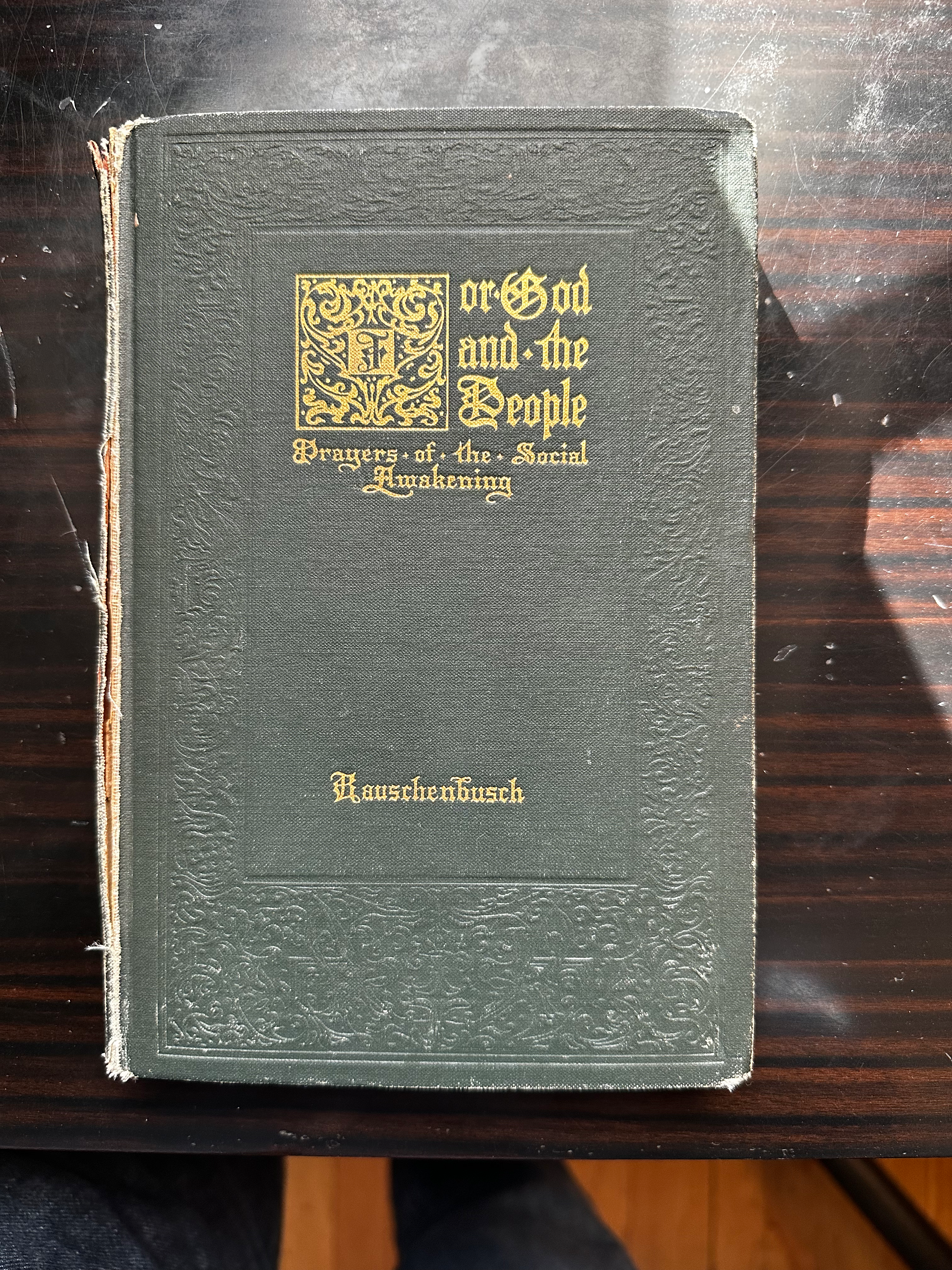
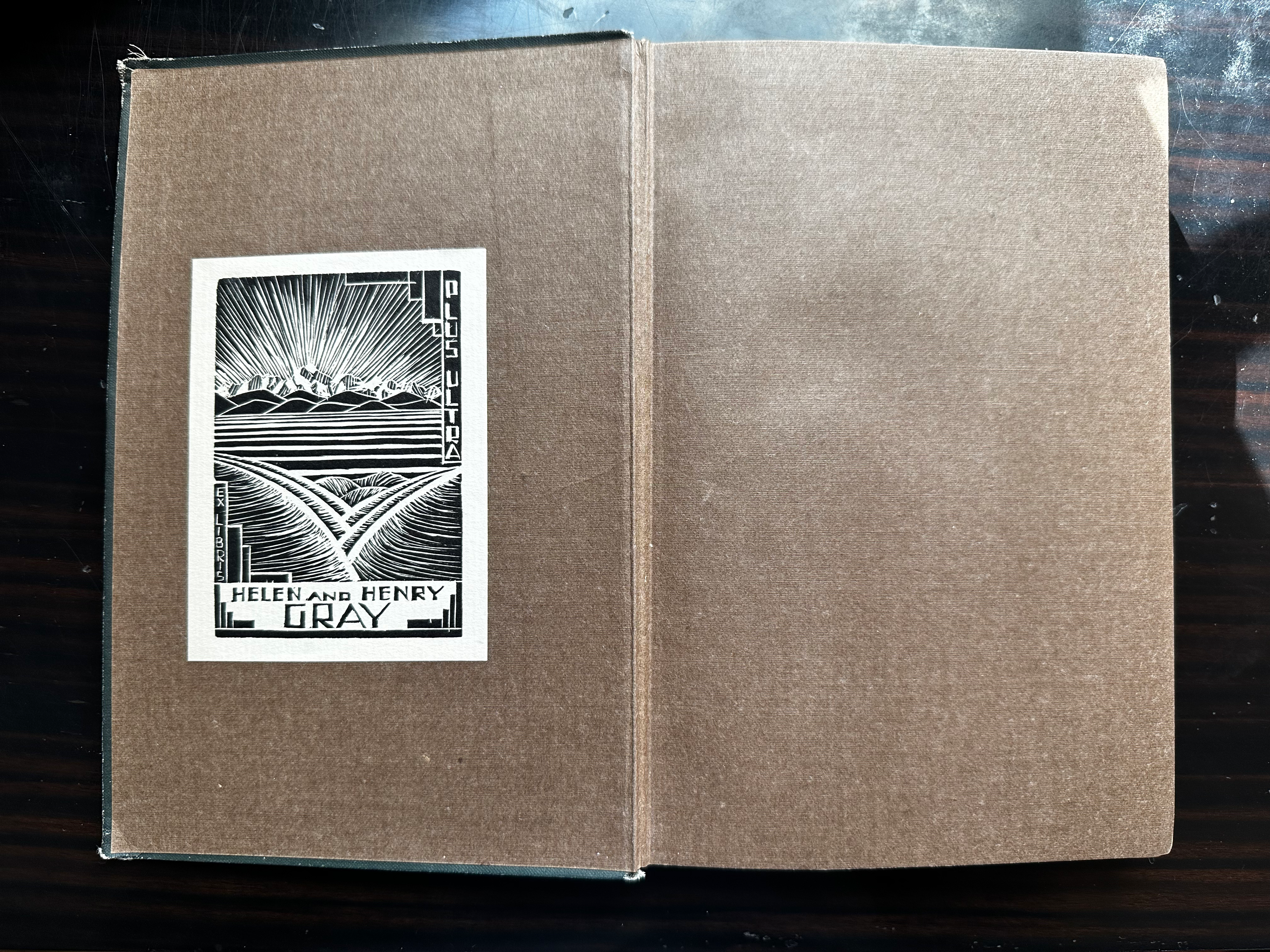
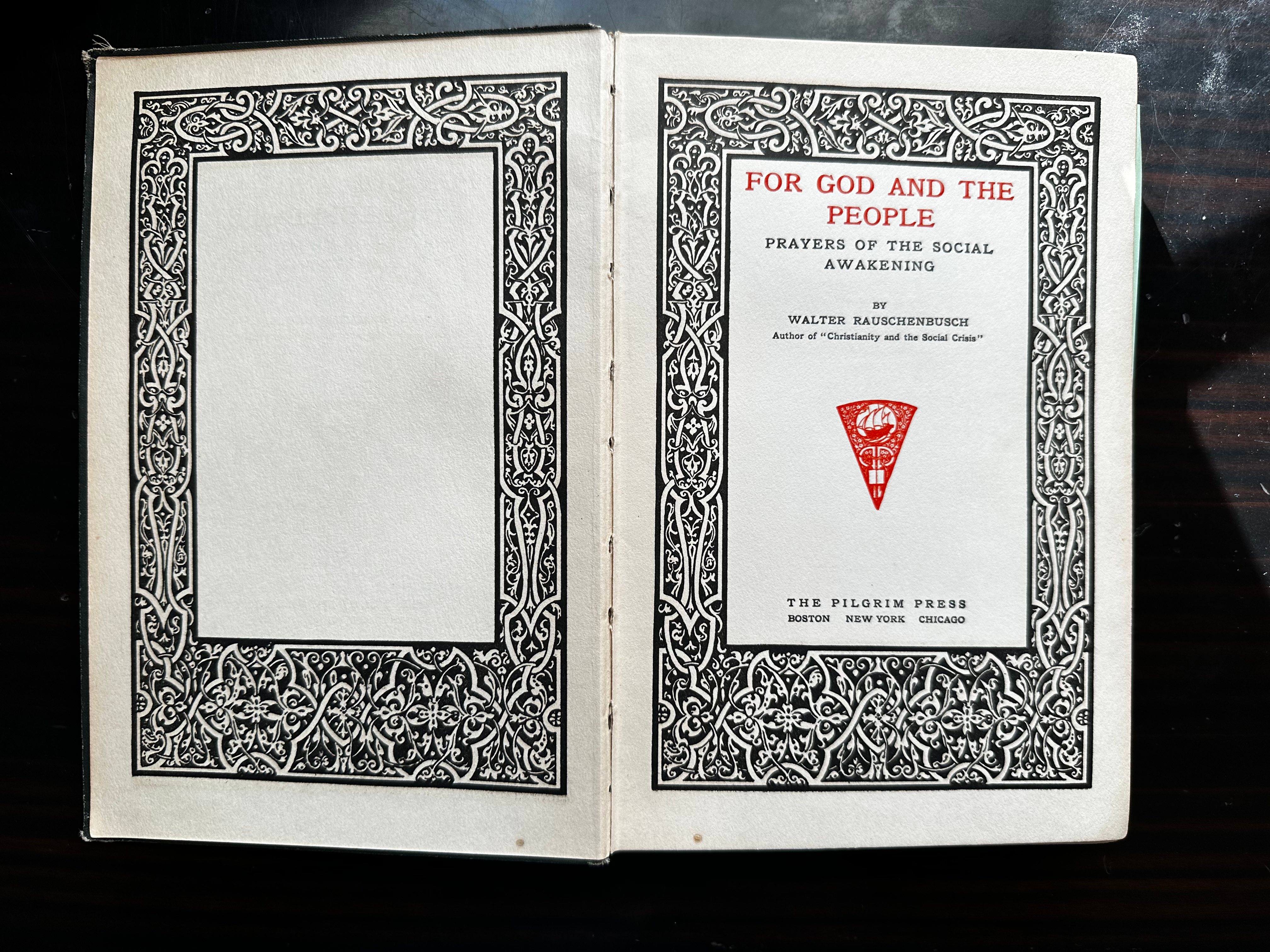
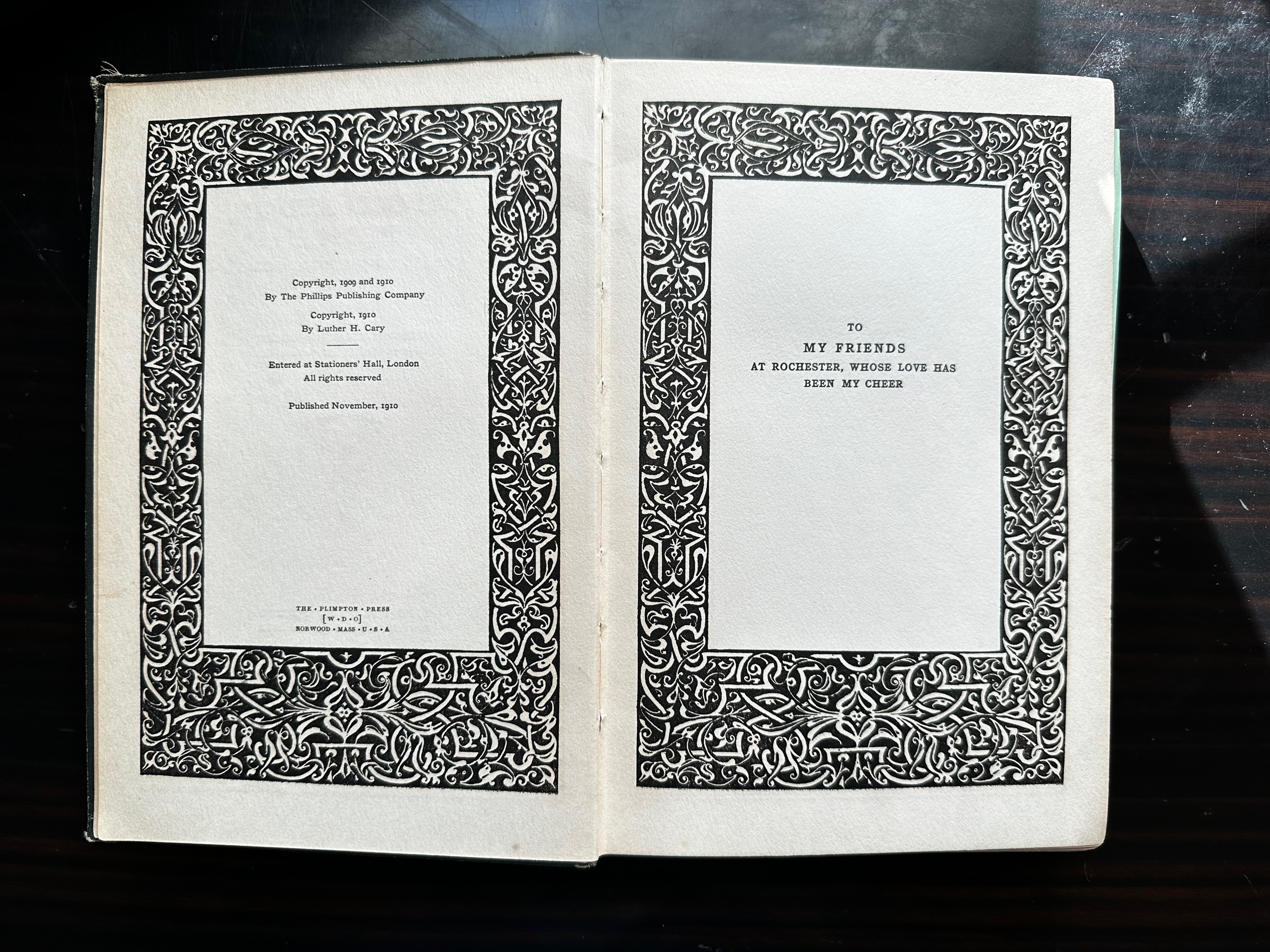
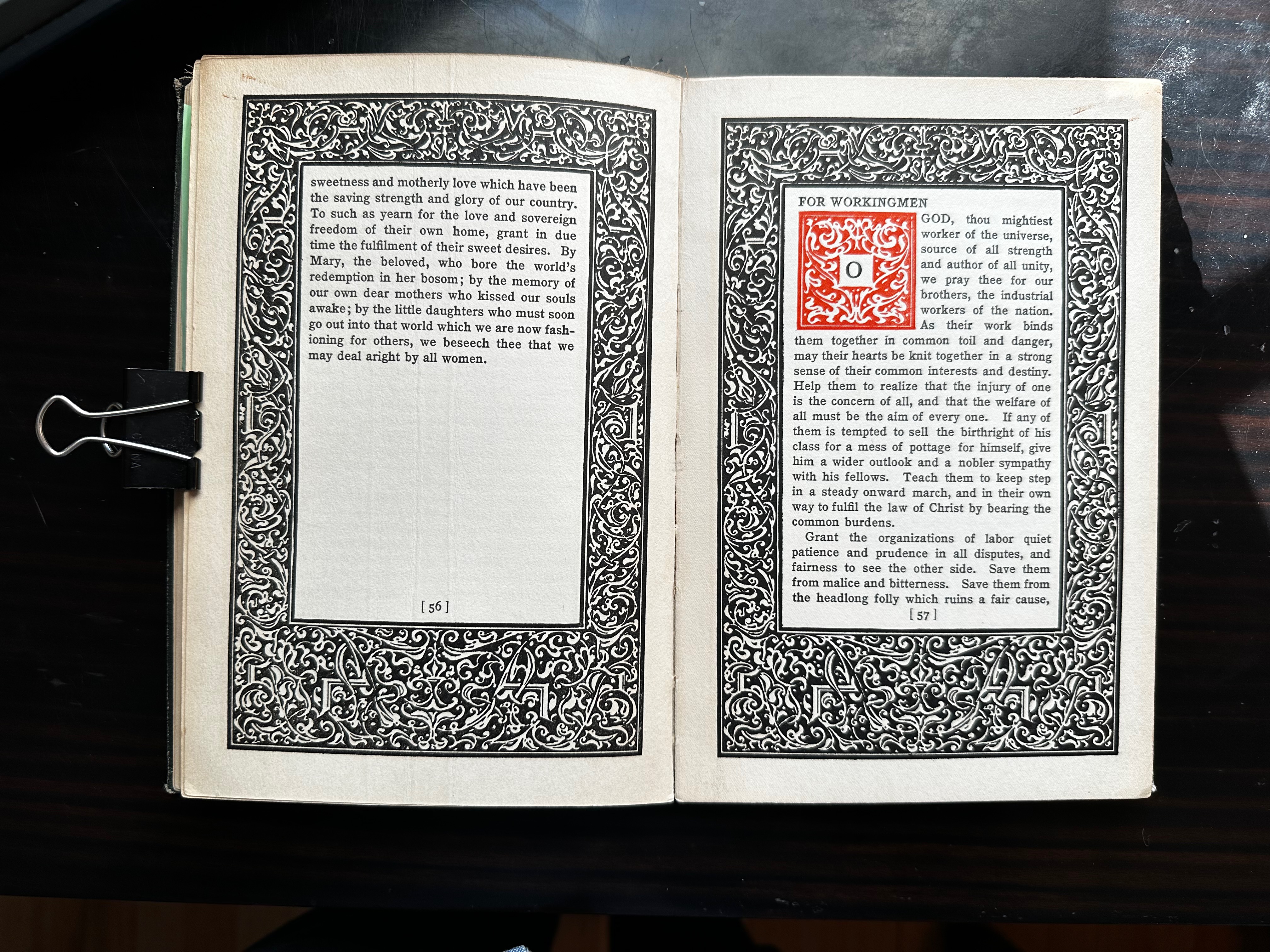
The second book has become one of my most prized possessions I have in my library: a 1909 copy of Walter Rauschenbusch’s prayers: “For God and the People.” This bok is beautifully printed and packed full of wonderful prayers. Beyond that, Rauschenbuch became an inspiration for me during my time as pastor (and it is the result of this book which I have drawn on regularly for that inspiration). I used to keep it on a shelf right at forehead-level, along with a handful of other books, so that every time I looked up I was reminded of various people and commitments important to me.
Rauschenbusch was a pastor to a very poor community in Hell’s Kitchen during his life and through his preaching, teaching, and action he was an important figure in the “Social Gospel Movement,” which argues that Christian ethics should be applied to issues social injustice like poverty and economic inequality. The especially interesting timing of Betsy’s visit was that just a few weeks prior I learned about Walter Rauschenbusch for the first time from podcast On Being. I loved hearing from his grandson, Paul, on that podcast about his life and was instantly inspired. Having never read any of his work and only hearing his name mentioned in passing you can imagine my delight when I opened a box of books from Betsy’s father and found this old, well-loved, well-used copy of Rauschenbusch’s prayers that include prayers for children who are book, workers, immigrants, and more.
This was an important plot line in my theological development and interest in anti-poverty work that brought me to understanding and believing that not only was Jesus a friend to the poor, he was poor himself and organized the poor to demonstrate God’s siding with those on the margins, the victims of empire.
During my time living the in PNW and working among Camas Quakers, I became more and more changed by this view and practice. The importance of Jesus’ resistance to empire in his time as a model for Friends approaching climate, economic, racial, and other social injustices in ours. Back then, and very much due to some of these connections to the past which amplified my present circumstances, I felt further called to the poor and dispossessed, attempting to walk with our meeting in compassion towards those suffering in our community.
It was a deeply transformative time. Much of that informed not only my work you connected with on Participatory Culture, but even more so in my book “Resisting Empire: The Book of Revelation as Resistance.”
Receiving these zines from Natalie brought all of this back to the surface for me and reminded me very much of what I have been called to and why.
Thank you again, Natalie for sharing your gifts with us.